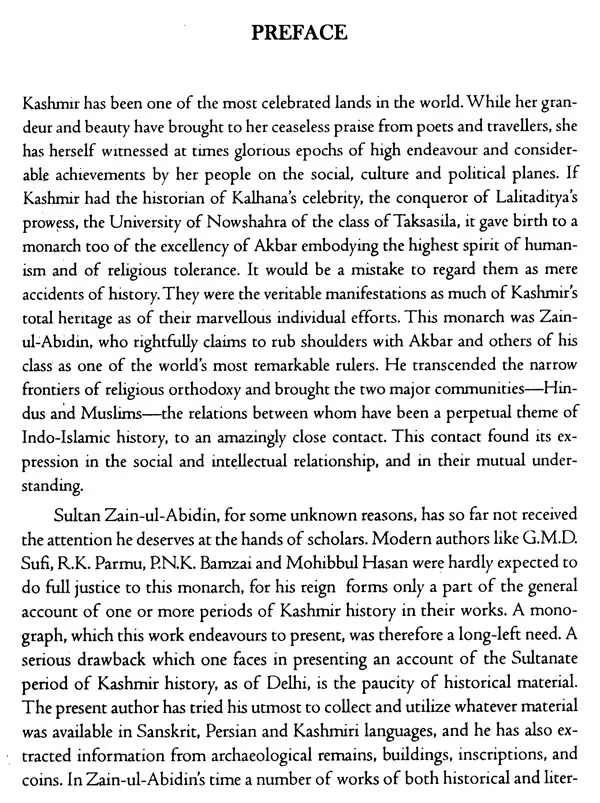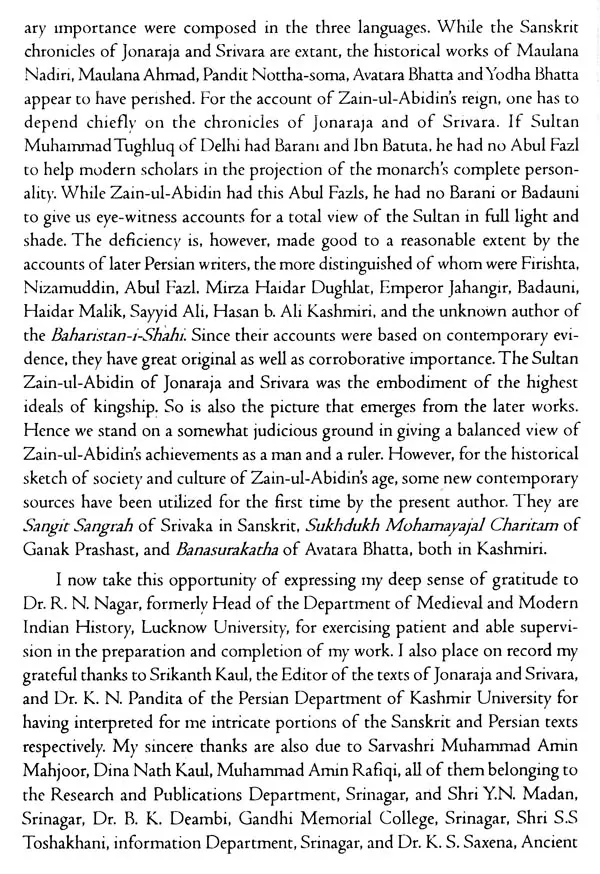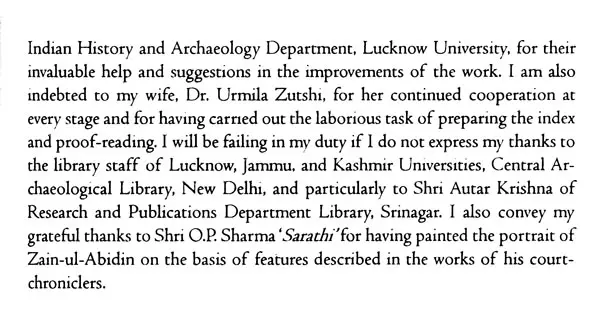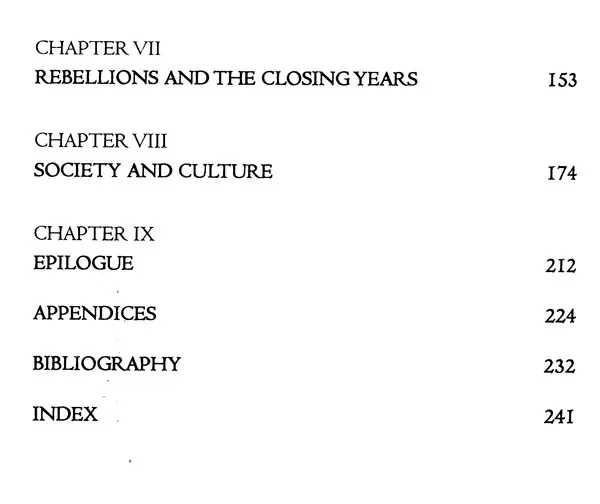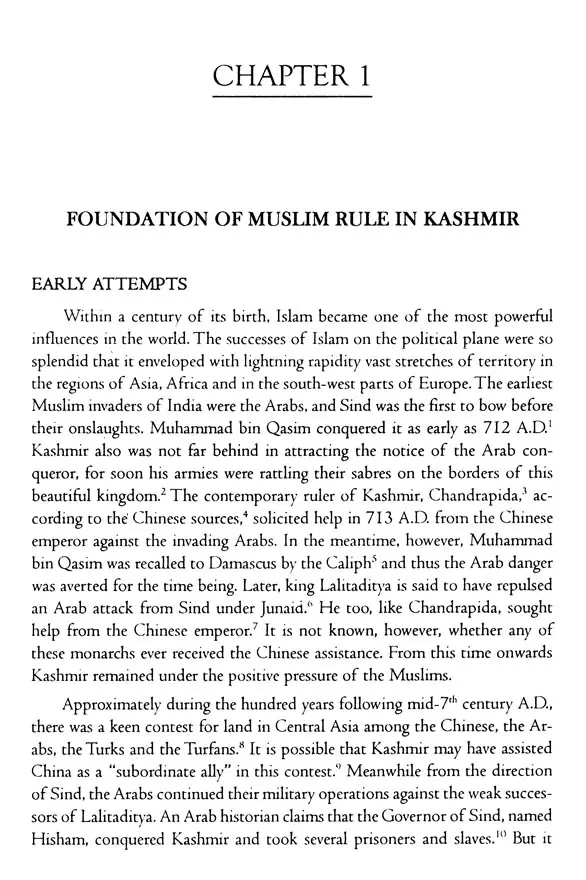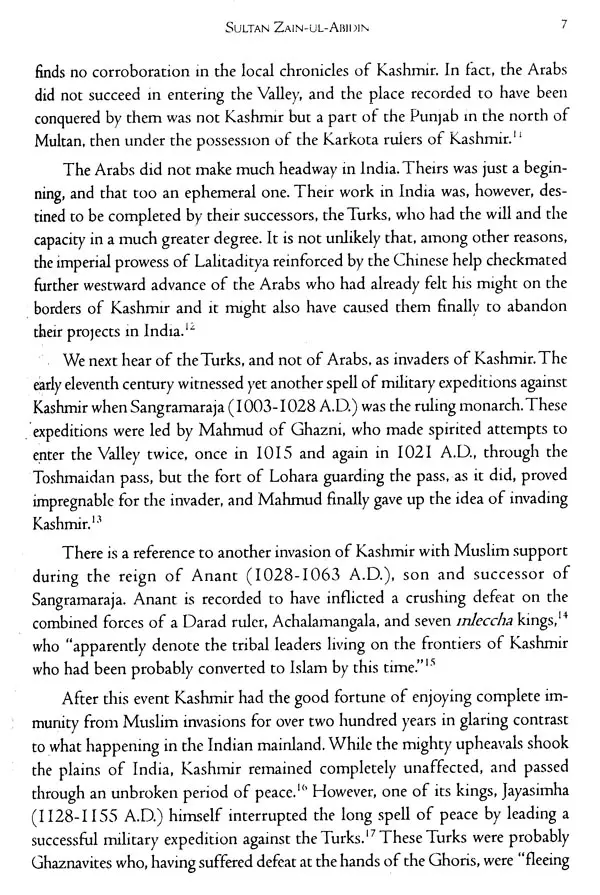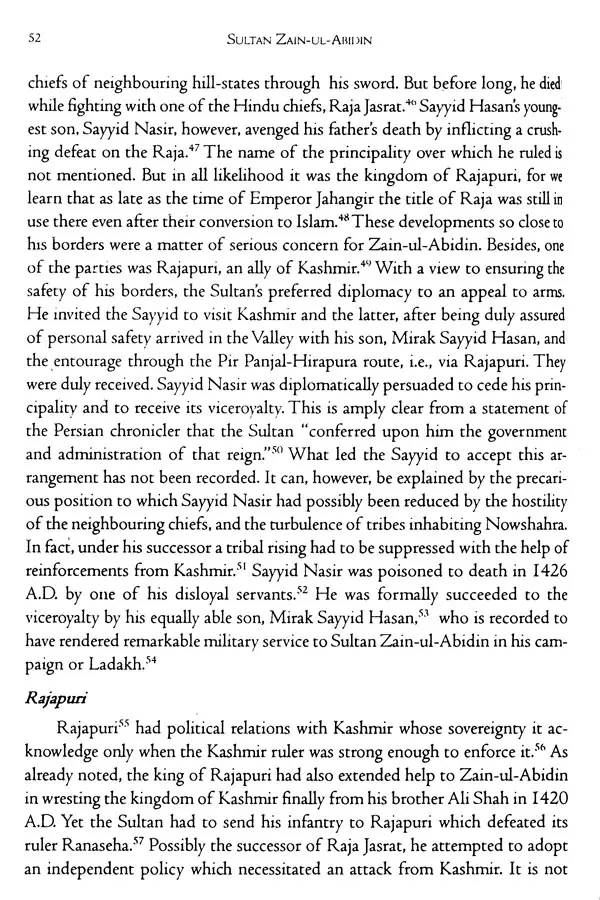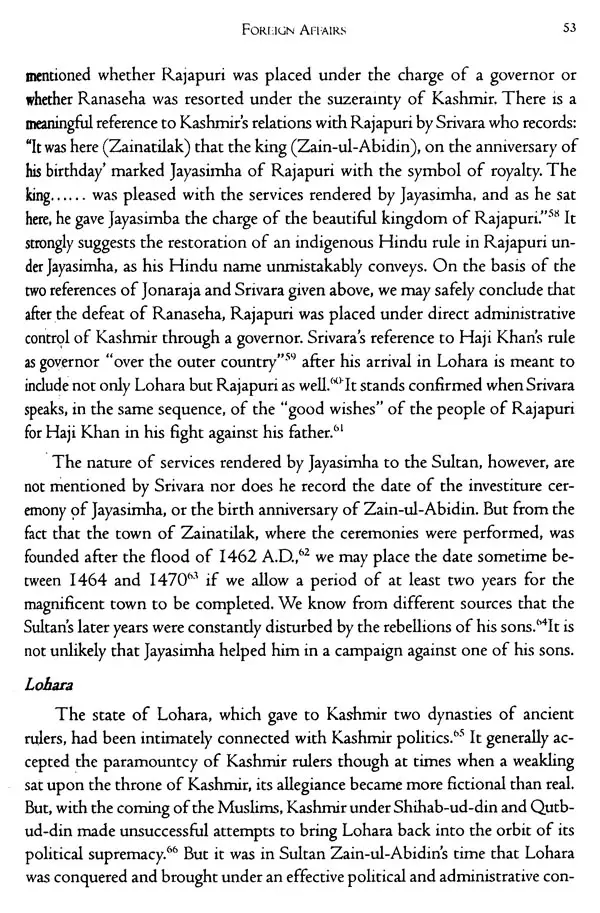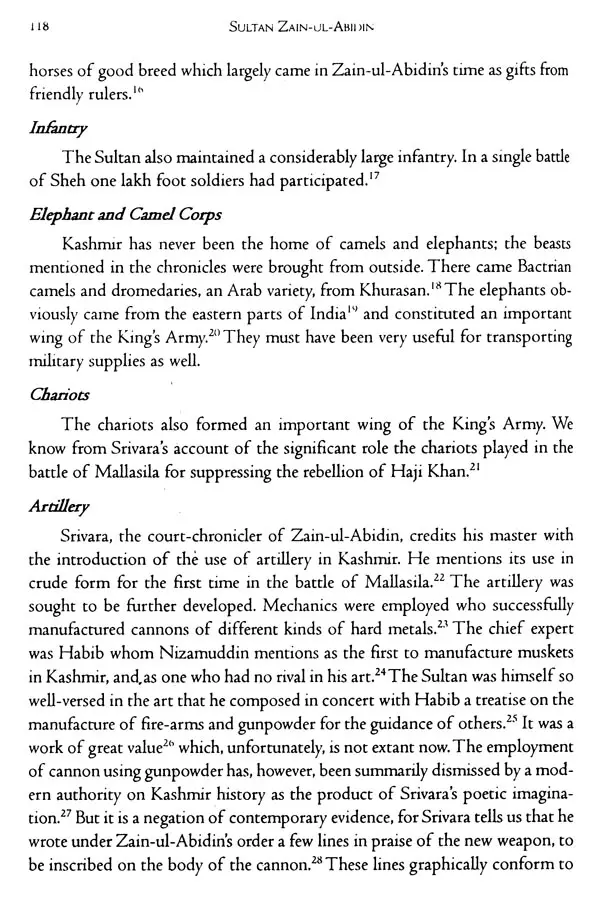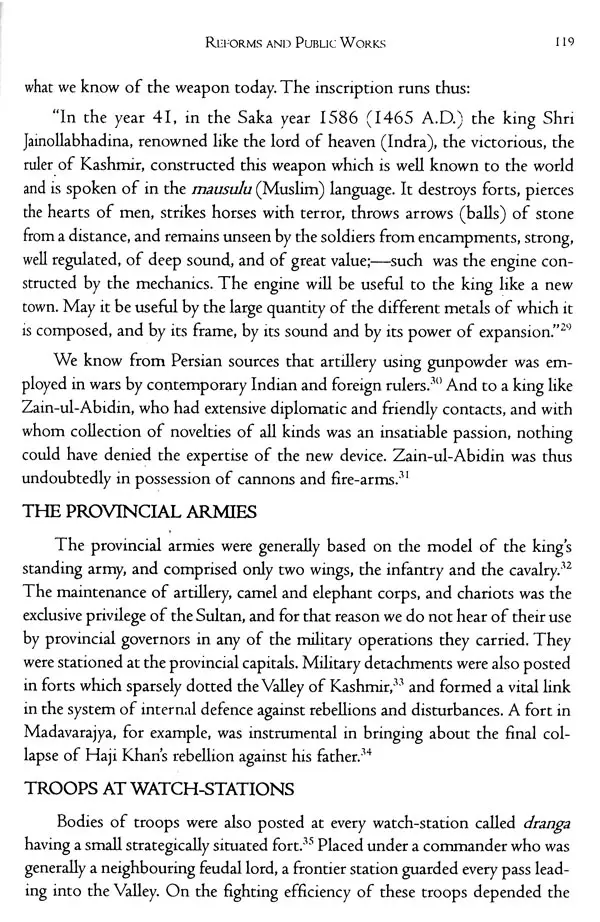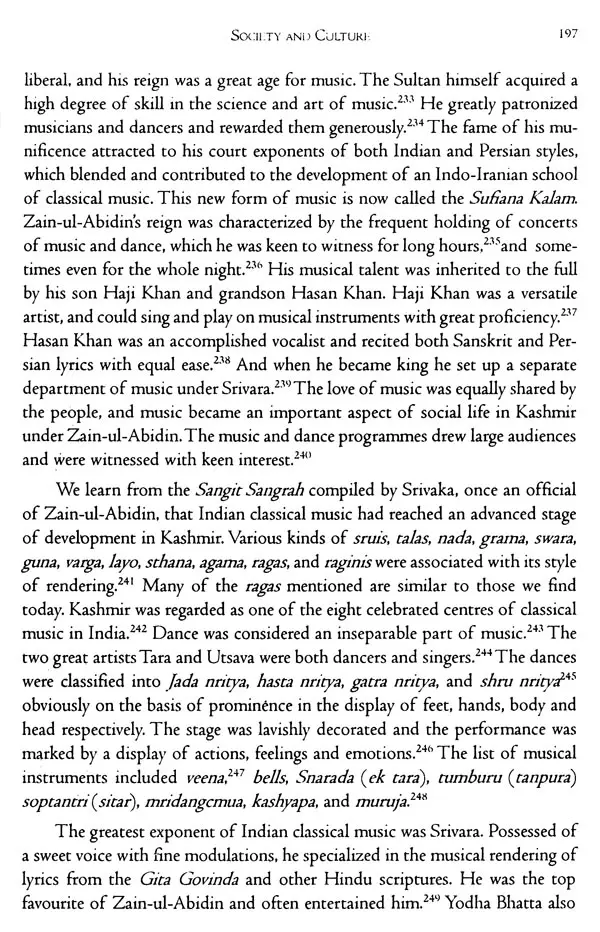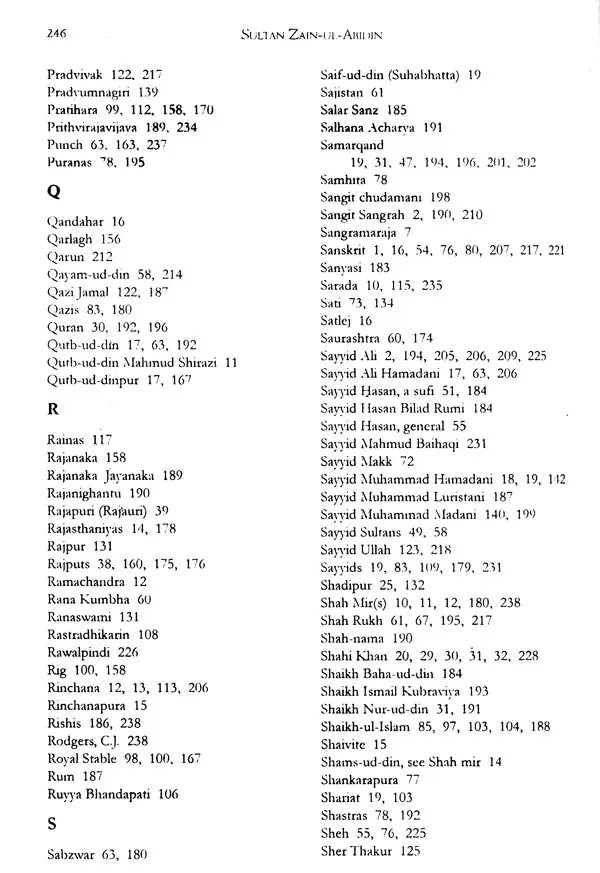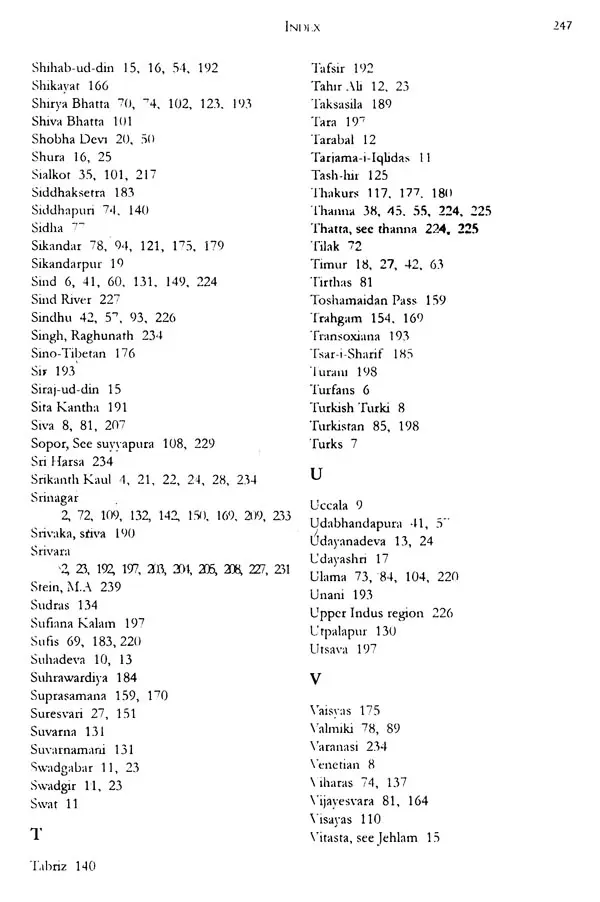
Sultan Zain-ul-Abidin of Kashmir- An Age of Enlightenment
Book Specification
| Item Code: | UAI829 |
| Author: | N.K. Zutshi |
| Publisher: | Gulshan Books, Kashmir |
| Language: | English |
| Edition: | 2012 |
| ISBN: | 9788183391948 |
| Pages: | 254 |
| Cover: | HARDCOVER |
| Other Details | 10.00 X 7.00 inch |
| Weight | 550 gm |
Book Description
While the Sanskrit chronicles of Jonaraja and Srivara are extant, the historical works of Maulana Nadiri, Maulana Ahmad, Pandit Nottha-soma, Avatara Bhatta and Yodha Bhatta appear to have perished. For the account of Zain-ul-Abidin's reign, one has to depend chiefly on the chronicles of Jonaraja and of Srivara. If Sultan Muhammad Tughluq of Delhi had Barani and lbn Batuta, he had no Abul Fazl to help modern scholars in the projection of the monarch's complete personality. While Zain-ul-Abidin had this Abul Fazis, he had no Barani or Badauni to give us eye-witness accounts for a total view of the Sultan in full light and shade.
The deficiency is, however, made good to a reasonable extent by the accounts of later Persian writers, the more distinguished of whom were Firishta, Nizamuddin, Abul Fazl, Mirza Haidar Dughlat, Emperor Jahangir, Badauni, Haidar Malik, Sayyid Ali, Hasan b. Ali Kashmiri, and the unknown author of the Baharistan-i-Shahi. Since their accounts were based on contemporary evidence, they have great original as well as corroborative importance. The Sultan Zain-ul-Abidin of Jonaraja and Srivara was the embodiment of the highest ideals of kingship. So is also the picture that emerges from the later works. Hence we stand on a somewhat judicious ground in giving a balanced view of Zain-ul-Abidin's achievements as a man and a ruler. However, for the historical sketch of society and culture of Zain-ul-Abidin's age, some new contemporary sources have been utilized for the first time by the present author. They are Sangit Sangrah of Srivaka in Sanskrit, S ukhdukh Mohamayajal Charitam of Ganak Prashast, and Banasurakatha of Avatara Bhatta, both in Kashmiri.
Book's Contents and Sample Pages

